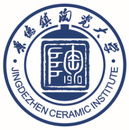Jingdezhen Ceramic Institute has 48 undergraduate majors, 2 first-level discipline doctor degree programs, 13 first-level discipline master degree programs (51 second-level discipline master degree programs) and 5 professional master degree programs, which covers 10 disciplines including engineering, art, management, literature, science, history, etc. In the setup of disciplines and specialties, art and engineering are both emphasized, and art, engineering, and commerce are combined. The advantage of “design art and ceramic engineering” is made more prominent. It has 5 provincial major courses (including 2 provincial high level courses) and the three advantageous discipline groups “art design and ceramic culture, ceramic materials engineering and mechanical and electrical engineering, ceramic economy and management”are formed. Jingdezhen Ceramic Institute puts great effort into cultivating high-level professional talents from ceramic materials, product design to management of the whole industry chain. In the 3rd round of disciplinary evaluation of China Ministry of Education, the discipline of Design ranks 6 nationally, Fine Arts ranks 9 and Material Science & Engineering ranks 16, which shows prominent disciplinary advantages. In 2016, the discipline of Design became a leading one in Jiangxi Disciplinary Union of Higher Educational Institutions. The majors of Arts disciplines in undergraduate program of JCI have the privilege of advanced enrollment, while Inorganic Non-metallic Materials Engineering, Mechanical Design and Making & Automation have the first privilege of enrollment.
JCI has a long and profound educational history in Jiangxi Province. With a strong industrial background and diligent work ethic, this institution proves itself as one of the most distinctive universities in Jiangxi Province and across the country. Recently, the university accompanied China’s Ministry of Education where they participated in Russia's 21st century Chinese universities exhibition. At such events, JCI would regularly present national gifts on behalf of the Chinese government to foreign dignitaries, maintaining this prestigious reputation at a global status. JCI began receiving foreign students as early as 1958. During the 60 years which have passed, the university has trained pupils from more than 20 countries from all continents, having received more than 3000 students from the United States of America, the United Kingdom, France, Japan, Korea and other countries and regions. JCI has collaborated with more than 30 colleges, universities and international artist associations, etc. Such arduous efforts have helped to establish long-lasting relations amongst them all, giving way to the exchange many academic exchanges for both teachers and students alike. In promotion of building the potters studio, JCI - WVU International Ceramic Artist Studio project was established by the department of international relations between China and the United States of America. This is one of 200 similar international exchanges which have taken place as a model of non-governmental exchanges of China and the United States and new tide. Other efforts made with colleges and universities abroad include the 3 + 1 + 2 program established between JCI and South Korea’s Wonkwang University and Dankook University. In 2016, the first overseas Ceramic Culture Research Center, South Korea - Jingdezhen Ceramic Institute International Ceramic Culture Exchange Centre, was also founded.
In recent years, the university has kept abreast with new trends of ceramic art in the world, relying on the ceramic culture of Jingdezhen. It has also hosted more than 10 international conferences in the fields of ceramic engineering, art, culture and education. Particularly during the past two years, the university has actively integrated into the area strategy, successfully hosting the Marine silk road - the road of ceramics and Imperial Kiln and Ceramic Art; Jingdezhen Ceramics with the international academic seminar of area strategy; China (Jingdezhen) high-tech ceramics international BBS and the 9th Asian ceramics workshop; the 3rd China International Symposium on Central Design Art and ISCAEE International Education Exchange Institute series of activities such as academic exchange activities, which are of important international influence of more than 200 overseas experts attending, vigorously promoting the international development of ceramic technology and cultural art. The university has successively represented China in the headquarters of UNESCO, the University of Cambridge, Greece, The Louvre Museum, France, etc. while also having its faculty and students participate in other ceramic art exhibitions globally. This fully demonstrates the universities capabilities in ceramic art education and the creation of outstanding achievements, greatly promoting Chinese ceramics culture and art to the world.




